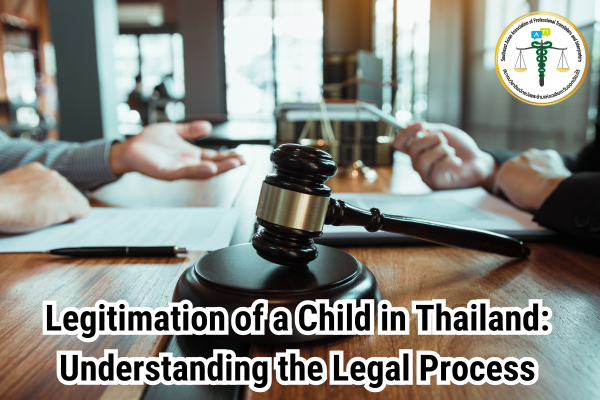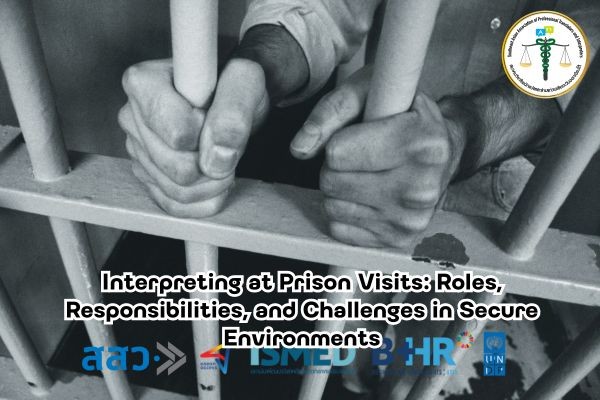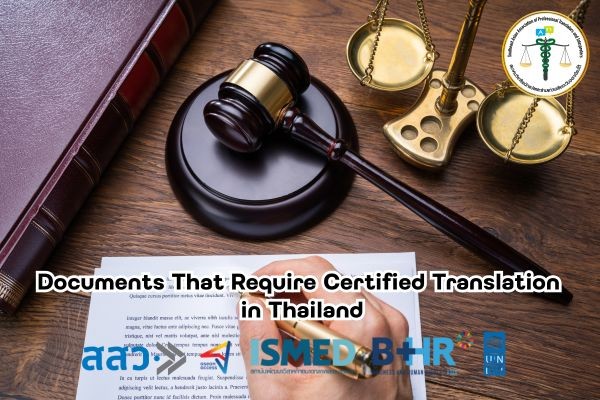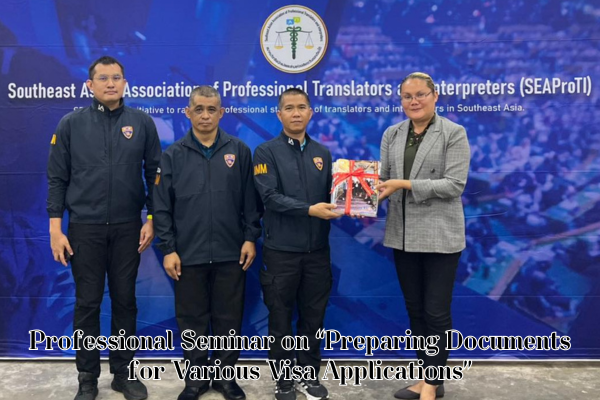Legitimation of a Child in Thailand: Understanding the Legal Process
6 December 2025, Bangkok – The legal recognition of parental rights for fathers in Thailand, particularly in cases where children are born out of wedlock, requires a process known as legitimation. This article delves into the legal framework governing legitimation, highlighting its significance, procedures, and implications for fathers and children. Additionally, we explore how certified translators and translation certification providers can play a crucial role in this process, particularly in cases involving foreign nationals.
The Importance of Legitimation in Thai Law
In Thai law, biological paternity does not automatically grant a father legal parental rights. Even if a father’s name appears on the child’s birth certificate, this alone does not establish his status as a legitimate parent. Legitimation is essential to formalize the legal relationship between the father and the child, granting the father rights to make decisions regarding the child’s education, health, and overall welfare. Without legitimation, the father’s role remains limited, potentially leaving the child without necessary legal protections.
Beyond parental rights, legitimation has significant implications for the child’s inheritance rights and legal recognition within the family. A legitimized child gains entitlement to inheritance under Thai succession laws, ensuring financial and legal security within the father’s family. Therefore, legitimation is a crucial step for fathers committed to securing their child’s future.
Methods of Legitimation in Thailand
Thai law outlines three primary methods for a father to achieve legitimation. The first method applies when the parents are legally married at the time of the child’s birth, automatically granting legitimacy to the child. If the parents marry after the child’s birth, legitimacy is applied retroactively.
The second method involves registering the legitimation at the local Amphur (district office) with the mother’s consent. When the mother agrees, the process is relatively straightforward and can be completed administratively. However, when the mother does not consent, the father must pursue legitimation through the family court, which constitutes the third method. In this case, the father must meet specific legal requirements and provide evidence to support his claim.
Legitimation Through Registration
When the mother consents to legitimation, the father can submit an application to the local Amphur. Upon receiving the application, the registrar informs the mother, providing her with 60 days to respond. If she consents within this period, the registrar finalizes the legitimation, granting the father legal parental rights. However, if the mother refuses or fails to respond, the process cannot proceed administratively, necessitating court involvement.
Court Proceedings for Legitimation
If the mother’s consent is not granted, the father must file a petition for legitimation with the family court. The court evaluates the father’s claim based on specific legal criteria outlined in Section 1555 of the Thai Civil and Commercial Code. These criteria include evidence of cohabitation during conception, written acknowledgment of the child, or proof of financial support provided by the father. The court’s decision is guided by the child’s best interests, ensuring that legitimation serves the child’s welfare and stability.
The court process often requires comprehensive documentation, including financial records, written statements, or DNA testing to establish biological paternity. Fathers must present compelling evidence to substantiate their claims, and professional legal counsel is strongly recommended to navigate the complexities of the court system.
The Role of Certified Translators and Translation Certification Providers
In cases involving foreign fathers, language barriers and the need for accurate documentation often add complexity to the legitimation process. This is where certified translators and translation certification providers, such as those accredited by the Southeast Asian Association of Professional Translators and Interpreters (SEAProTI), prove invaluable.
Certified translators ensure that all legal documents, including birth certificates, court filings, and evidence, are accurately translated into Thai or the father’s native language. Accuracy is critical, as any discrepancies in translation can result in delays or complications in the legal proceedings. SEAProTI-certified translators are recognized for their professional standards, ensuring that the translations meet the stringent requirements of Thai authorities.
Translation certification providers further enhance the legitimacy of translated documents. Their official certification verifies that the translations are accurate and comply with legal standards, providing confidence to both the courts and government agencies involved in the legitimation process. These services are particularly essential for foreign fathers who may need to submit documents from their home countries, such as proof of identity or prior legal agreements.
By leveraging the expertise of certified translators and translation certification providers, fathers can ensure that their applications are processed smoothly and without unnecessary complications. These professionals bridge language and legal gaps, enabling fathers to present their cases effectively in Thailand’s legal system.
Legal Implications of Legitimation
Once a father successfully legitimizes a child, he assumes all legal rights and responsibilities associated with parenthood. This includes the obligation to provide for the child’s necessities, such as education, healthcare, and general welfare. Legitimation also grants the father decision-making authority over critical aspects of the child’s life, including education, religion, and residence.
The court may issue additional orders concerning custody and child support as part of the legitimation judgment. These measures ensure that the child’s needs are adequately addressed and that both parents contribute to their upbringing.
Furthermore, legitimation secures the child’s legal status within the father’s family. This recognition extends to inheritance rights, enabling the child to benefit from financial stability and security under Thai law. For fathers, legitimation represents a commitment to their child’s future, providing both legal recognition and emotional reassurance.
Navigating the Process with Professional Assistance
For foreign fathers, navigating the legitimation process can be challenging due to cultural differences, language barriers, and the intricacies of Thai family law. Engaging professional services, including legal counsel and certified translators, is essential to ensuring a smooth and successful application.
SEAProTI-certified translators and translation certification providers play a crucial role in facilitating communication and ensuring compliance with legal requirements. Their expertise helps foreign fathers overcome linguistic and bureaucratic obstacles, enabling them to focus on building a meaningful and legally recognized relationship with their child.
Conclusion
Legitimation in Thailand is a vital legal process that allows fathers to establish their parental rights and responsibilities. Whether pursued through registration, consent, or court proceedings, legitimation is essential for ensuring the child’s welfare and stability. For foreign fathers, the involvement of certified translators and translation certification providers significantly simplifies the process, ensuring that all documentation meets the necessary legal standards.
By understanding the nuances of Thai family law and seeking professional assistance, fathers can successfully navigate the legitimation process, securing their child’s future and strengthening their bond. This commitment not only benefits the child but also upholds the father’s role in providing love, care, and support under the framework of Thai law.
About SEAProTI’s certified translators, translation certification providers, and certified interpreters:
The Southeast Asian Association of Professional Translators and Interpreters (SEAProTI) has officially announced the criteria and qualifications for individuals to register as “Certified Translators,” “Translation Certification Providers,” and “Certified Interpreters” under the association’s regulations. These guidelines are detailed in Sections 9 and 10 of the Royal Thai Government Gazette, issued by the Secretariat of the Cabinet under the Office of the Prime Minister of the Kingdom of Thailand, dated July 25, 2024, Volume 141, Part 66 Ng, Page 100.
To read the full publication, visit: the Royal Thai Government Gazette
การรับรองบุตรในประเทศไทย: การทำความเข้าใจขั้นตอนทางกฎหมาย
การรับรองสิทธิความเป็นพ่อแม่ตามกฎหมายในประเทศไทย โดยเฉพาะในกรณีที่เด็กเกิดมานอกสมรส จำเป็นต้องผ่านกระบวนการที่เรียกว่าการรับรองบุตร บทความนี้จะเจาะลึกถึงกรอบกฎหมายที่เกี่ยวข้องกับการรับรองบุตร โดยเน้นความสำคัญ ขั้นตอน และผลกระทบที่มีต่อทั้งพ่อและเด็ก นอกจากนี้ ยังกล่าวถึงบทบาทสำคัญของนักแปลรับรองและผู้ให้บริการรับรองการแปลในการสนับสนุนกระบวนการนี้ โดยเฉพาะในกรณีที่เกี่ยวข้องกับชาวต่างชาติ
ความสำคัญของการรับรองบุตรในกฎหมายไทย
ตามกฎหมายไทย ความเป็นบิดาโดยสายเลือดไม่ได้หมายความว่าพ่อจะมีสิทธิความเป็นพ่อแม่ตามกฎหมายโดยอัตโนมัติ แม้ว่าชื่อของพ่อจะปรากฏในสูติบัตรของเด็กก็ตาม การรับรองบุตรเป็นกระบวนการที่สำคัญในการสร้างความสัมพันธ์ทางกฎหมายระหว่างพ่อและลูก ซึ่งจะมอบสิทธิให้พ่อมีส่วนตัดสินใจในเรื่องการศึกษา สุขภาพ และสวัสดิภาพโดยรวมของเด็ก หากไม่มีการรับรองบุตร บทบาทของพ่อจะถูกจำกัด ซึ่งอาจทำให้เด็กไม่ได้รับการคุ้มครองทางกฎหมายที่จำเป็น
นอกจากสิทธิความเป็นพ่อแม่แล้ว การรับรองบุตรยังส่งผลสำคัญต่อสิทธิการรับมรดกและการยอมรับทางกฎหมายในครอบครัว เด็กที่ได้รับการรับรองบุตรจะมีสิทธิรับมรดกตามกฎหมายมรดกของไทย ซึ่งช่วยสร้างความมั่นคงทางการเงินและกฎหมายในครอบครัวของพ่อ ดังนั้น การรับรองบุตรจึงเป็นขั้นตอนที่สำคัญสำหรับพ่อที่มุ่งมั่นจะสร้างความมั่นคงให้กับอนาคตของลูก
วิธีการรับรองบุตรในประเทศไทย
กฎหมายไทยกำหนดวิธีการรับรองบุตรสามวิธีหลัก วิธีแรกใช้ได้ในกรณีที่พ่อแม่จดทะเบียนสมรสอย่างถูกต้องตามกฎหมายในขณะที่เด็กเกิด ซึ่งในกรณีนี้ เด็กจะได้รับการรับรองโดยอัตโนมัติ หากพ่อแม่จดทะเบียนสมรสหลังจากเด็กเกิด ความเป็นบุตรที่ถูกต้องจะถูกนำไปใช้ย้อนหลัง
วิธีที่สองเกี่ยวข้องกับการจดทะเบียนรับรองบุตรที่สำนักงานเขต (อำเภอ) โดยได้รับความยินยอมจากแม่ หากแม่ยินยอม ขั้นตอนจะค่อนข้างง่ายและสามารถดำเนินการได้ทางปกครอง อย่างไรก็ตาม หากแม่ไม่ยินยอม พ่อจะต้องดำเนินการทางศาล ซึ่งถือเป็นวิธีที่สาม ในกรณีนี้ พ่อต้องปฏิบัติตามข้อกำหนดทางกฎหมายเฉพาะและแสดงหลักฐานสนับสนุนคำร้อง
การรับรองบุตรโดยการจดทะเบียน
เมื่อแม่ยินยอมการรับรองบุตร พ่อสามารถยื่นคำร้องต่อสำนักงานเขต (อำเภอ) ได้ หลังจากได้รับคำร้อง เจ้าหน้าที่จะส่งข้อมูลแจ้งให้แม่ทราบและให้เวลาเธอ 60 วันในการตอบกลับ หากแม่ยินยอมภายในระยะเวลานี้ เจ้าหน้าที่จะดำเนินการรับรองบุตรและมอบสิทธิความเป็นพ่อแม่ตามกฎหมายให้แก่พ่อ อย่างไรก็ตาม หากแม่ปฏิเสธหรือไม่ตอบกลับ ขั้นตอนจะไม่สามารถดำเนินการต่อได้ และพ่อจำเป็นต้องพึ่งพากระบวนการศาล
กระบวนการศาลเพื่อการรับรองบุตร
หากไม่ได้รับความยินยอมจากแม่ พ่อต้องยื่นคำร้องต่อศาลครอบครัวเพื่อขอการรับรองบุตร ศาลจะประเมินคำร้องของพ่อโดยพิจารณาจากเกณฑ์ทางกฎหมายที่กำหนดในมาตรา 1555 แห่งประมวลกฎหมายแพ่งและพาณิชย์ของไทย เกณฑ์เหล่านี้รวมถึงหลักฐานที่แสดงถึงการอยู่ร่วมกันระหว่างพ่อแม่ในช่วงเวลาที่เด็กเกิด การยอมรับเด็กโดยเป็นลายลักษณ์อักษร หรือการสนับสนุนทางการเงินจากพ่อ ศาลจะตัดสินโดยพิจารณาจากผลประโยชน์สูงสุดของเด็ก เพื่อให้การรับรองบุตรสนับสนุนสวัสดิภาพและความมั่นคงของเด็ก
กระบวนการศาลมักต้องการเอกสารที่ครอบคลุม รวมถึงบันทึกทางการเงิน คำแถลงที่เป็นลายลักษณ์อักษร หรือการตรวจดีเอ็นเอเพื่อยืนยันความเป็นพ่อโดยสายเลือด พ่อต้องนำเสนอหลักฐานที่น่าเชื่อถือเพื่อสนับสนุนคำร้อง และขอแนะนำให้ปรึกษาทนายความผู้เชี่ยวชาญเพื่อจัดการกับความซับซ้อนของกระบวนการศาล
บทบาทของนักแปลรับรองและผู้ให้บริการรับรองการแปล
ในกรณีที่เกี่ยวข้องกับพ่อชาวต่างชาติ อุปสรรคทางภาษาและความจำเป็นในการมีเอกสารที่ถูกต้องมักเพิ่มความซับซ้อนให้กับกระบวนการรับรองบุตร ซึ่งเป็นที่ที่นักแปลรับรองและผู้ให้บริการรับรองการแปล เช่น ผู้ที่ได้รับการรับรองจากสมาคมวิชาชีพนักแปลและล่ามแห่งเอเชียตะวันออกเฉียงใต้ (SEAProTI) มีบทบาทสำคัญ
นักแปลรับรองช่วยให้มั่นใจว่าเอกสารทางกฎหมายทั้งหมด รวมถึงสูติบัตร คำร้องของศาล และหลักฐานต่าง ๆ ได้รับการแปลอย่างถูกต้องเป็นภาษาไทยหรือภาษาของพ่อ ความถูกต้องของการแปลเป็นสิ่งสำคัญ เนื่องจากความไม่สอดคล้องกันของการแปลอาจทำให้เกิดความล่าช้าหรือปัญหาในกระบวนการทางกฎหมาย นักแปลที่ได้รับการรับรองจาก SEAProTI ได้รับการยอมรับในมาตรฐานวิชาชีพของพวกเขา ซึ่งช่วยให้มั่นใจได้ว่าการแปลเป็นไปตามข้อกำหนดที่เข้มงวดของหน่วยงานไทย
ผู้ให้บริการรับรองการแปลยังช่วยเพิ่มความน่าเชื่อถือให้กับเอกสารที่แปล การรับรองอย่างเป็นทางการของพวกเขายืนยันว่าการแปลมีความถูกต้องและสอดคล้องกับมาตรฐานทางกฎหมาย ซึ่งสร้างความมั่นใจให้กับทั้งศาลและหน่วยงานรัฐบาลที่เกี่ยวข้องในกระบวนการรับรองบุตร บริการเหล่านี้มีความสำคัญอย่างยิ่งสำหรับพ่อชาวต่างชาติที่อาจต้องยื่นเอกสารจากประเทศบ้านเกิด เช่น หลักฐานการยืนยันตัวตนหรือข้อตกลงทางกฎหมายก่อนหน้า
ด้วยการใช้ความเชี่ยวชาญของนักแปลรับรองและผู้ให้บริการรับรองการแปล พ่อสามารถมั่นใจได้ว่าคำร้องของพวกเขาจะได้รับการดำเนินการอย่างราบรื่นและไม่เกิดปัญหาที่ไม่จำเป็น ผู้เชี่ยวชาญเหล่านี้ช่วยเชื่อมช่องว่างทางภาษาและกฎหมาย ช่วยให้พ่อสามารถนำเสนอคดีของพวกเขาได้อย่างมีประสิทธิภาพในระบบกฎหมายของประเทศไทย
ผลทางกฎหมายของการรับรองบุตร
เมื่อพ่อได้รับการรับรองบุตรสำเร็จ เขาจะได้รับสิทธิและหน้าที่ตามกฎหมายทั้งหมดที่เกี่ยวข้องกับความเป็นพ่อแม่ ซึ่งรวมถึงหน้าที่ในการจัดหาความจำเป็นพื้นฐานของเด็ก เช่น การศึกษา การดูแลสุขภาพ และสวัสดิภาพทั่วไป การรับรองบุตรยังมอบสิทธิให้พ่อมีอำนาจในการตัดสินใจในเรื่องสำคัญที่เกี่ยวข้องกับชีวิตของเด็ก เช่น การศึกษา ศาสนา และที่อยู่อาศัย
ศาลอาจออกคำสั่งเพิ่มเติมเกี่ยวกับการปกครองบุตรและการเลี้ยงดูบุตรเป็นส่วนหนึ่งของคำตัดสินการรับรองบุตร มาตรการเหล่านี้ช่วยให้มั่นใจได้ว่าความต้องการของเด็กจะได้รับการตอบสนองอย่างเพียงพอ และทั้งพ่อและแม่มีส่วนร่วมในการเลี้ยงดูเด็ก
นอกจากนี้ การรับรองบุตรช่วยสร้างสถานะทางกฎหมายของเด็กในครอบครัวของพ่อ การยอมรับนี้ครอบคลุมถึงสิทธิในการรับมรดก ซึ่งช่วยให้เด็กได้รับประโยชน์จากความมั่นคงทางการเงินและความปลอดภัยภายใต้กฎหมายไทย สำหรับพ่อ การรับรองบุตรแสดงถึงความมุ่งมั่นต่ออนาคตของลูก โดยให้ทั้งการยอมรับทางกฎหมายและความมั่นใจในความสัมพันธ์ทางอารมณ์
การนำทางกระบวนการด้วยความช่วยเหลือจากผู้เชี่ยวชาญ
สำหรับพ่อชาวต่างชาติ การนำทางกระบวนการรับรองบุตรอาจเป็นความท้าทายเนื่องจากความแตกต่างทางวัฒนธรรม อุปสรรคทางภาษา และความซับซ้อนของกฎหมายครอบครัวไทย การจ้างบริการจากผู้เชี่ยวชาญ รวมถึงทนายความและนักแปลรับรอง เป็นสิ่งสำคัญเพื่อให้มั่นใจว่าคำร้องจะประสบความสำเร็จและราบรื่น
นักแปลรับรองและผู้ให้บริการรับรองการแปลที่ได้รับการรับรองจาก SEAProTI มีบทบาทสำคัญในการอำนวยความสะดวกในการสื่อสารและการปฏิบัติตามข้อกำหนดทางกฎหมาย ความเชี่ยวชาญของพวกเขาช่วยให้พ่อชาวต่างชาติสามารถเอาชนะอุปสรรคด้านภาษาและระบบราชการ ช่วยให้พ่อสามารถมุ่งเน้นไปที่การสร้างความสัมพันธ์ที่มีความหมายและได้รับการยอมรับตามกฎหมายกับลูกของพวกเขา
สรุปส่งท้าย
การรับรองบุตรในประเทศไทยเป็นกระบวนการทางกฎหมายที่สำคัญที่ช่วยให้พ่อสามารถสร้างสิทธิและหน้าที่ความเป็นพ่อแม่ได้ ไม่ว่าจะดำเนินการผ่านการจดทะเบียน ความยินยอม หรือกระบวนการศาล การรับรองบุตรเป็นสิ่งจำเป็นเพื่อให้มั่นใจถึงสวัสดิภาพและความมั่นคงของเด็ก สำหรับพ่อชาวต่างชาติ การมีส่วนร่วมของนักแปลรับรองและผู้ให้บริการรับรองการแปลมีส่วนช่วยอย่างมากในการทำให้กระบวนการง่ายขึ้น โดยมั่นใจว่าเอกสารทั้งหมดเป็นไปตามมาตรฐานทางกฎหมายที่จำเป็น
ด้วยความเข้าใจในรายละเอียดของกฎหมายครอบครัวไทยและการขอคำแนะนำจากผู้เชี่ยวชาญ พ่อสามารถนำทางกระบวนการรับรองบุตรได้อย่างประสบความสำเร็จ สร้างอนาคตที่มั่นคงให้กับลูกและเสริมสร้างความสัมพันธ์ระหว่างพ่อและลูก ความมุ่งมั่นนี้ไม่เพียงแต่เป็นประโยชน์ต่อเด็ก แต่ยังยืนยันบทบาทของพ่อในการมอบความรัก การดูแล และการสนับสนุนภายใต้กรอบกฎหมายของไทย
เกี่ยวกับนักแปลรับรอง ผู้รับรองการแปล และล่ามรับรองของสมาคมวิชาชีพนักแปลและล่ามแห่งเอเชียตะวันออกเฉียงใต้
สมาคมวิชาชีพนักแปลและล่ามแห่งเอเชียตะวันออกเฉียงใต้ (SEAProTI) ได้ประกาศหลักเกณฑ์และคุณสมบัติผู้ที่ขึ้นทะเบียนเป็น “นักแปลรับรอง (Certified Translators) และผู้รับรองการแปล (Translation Certification Providers) และล่ามรับรอง (Certified Interpreters)” ของสมาคม หมวดที่ 9 และหมวดที่ 10 ในราชกิจจานุเบกษา ของสำนักเลขาธิการคณะรัฐมนตรี ในสำนักนายกรัฐมนตรี แห่งราชอาณาจักรไทย ลงวันที่ 25 ก.ค. 2567 เล่มที่ 141 ตอนที่ 66 ง หน้า 100 อ่านฉบับเต็มได้ที่: นักแปลรับรอง ผู้รับรองการแปล และล่ามรับรอง
























